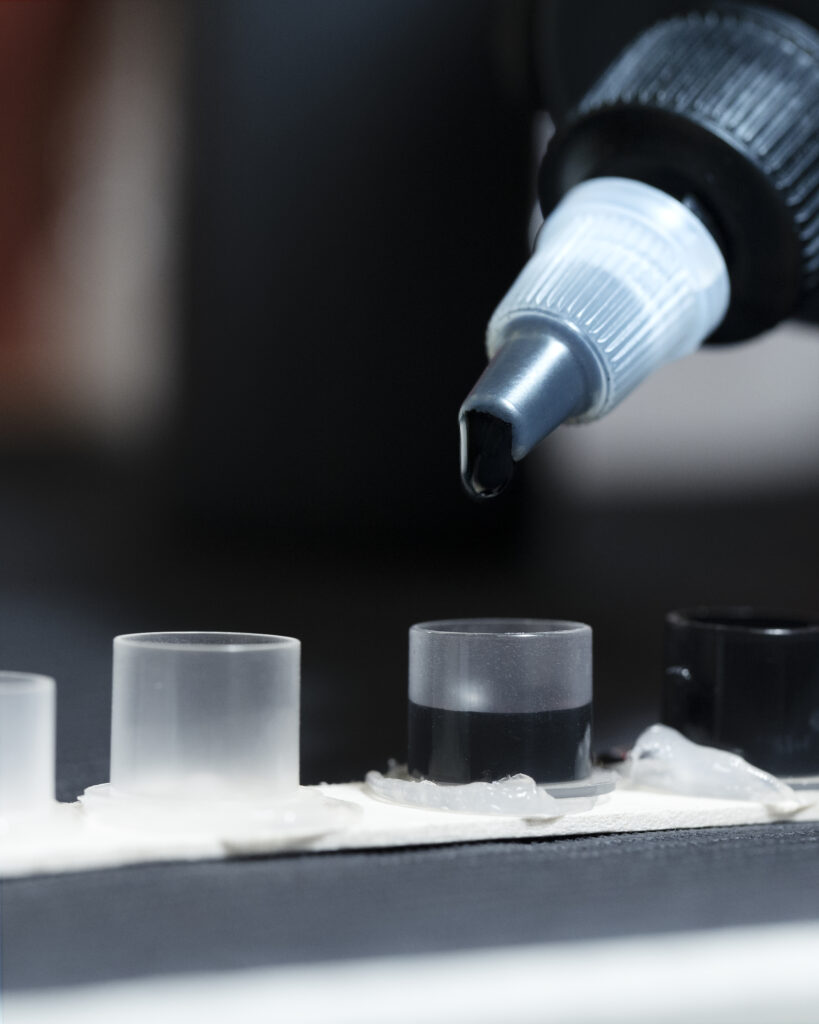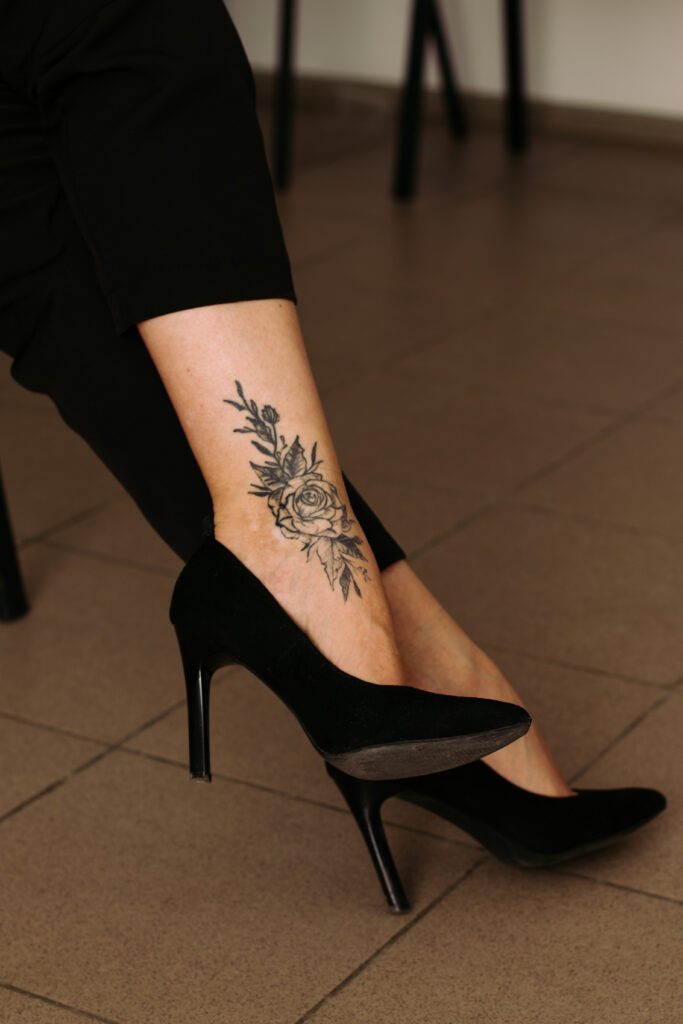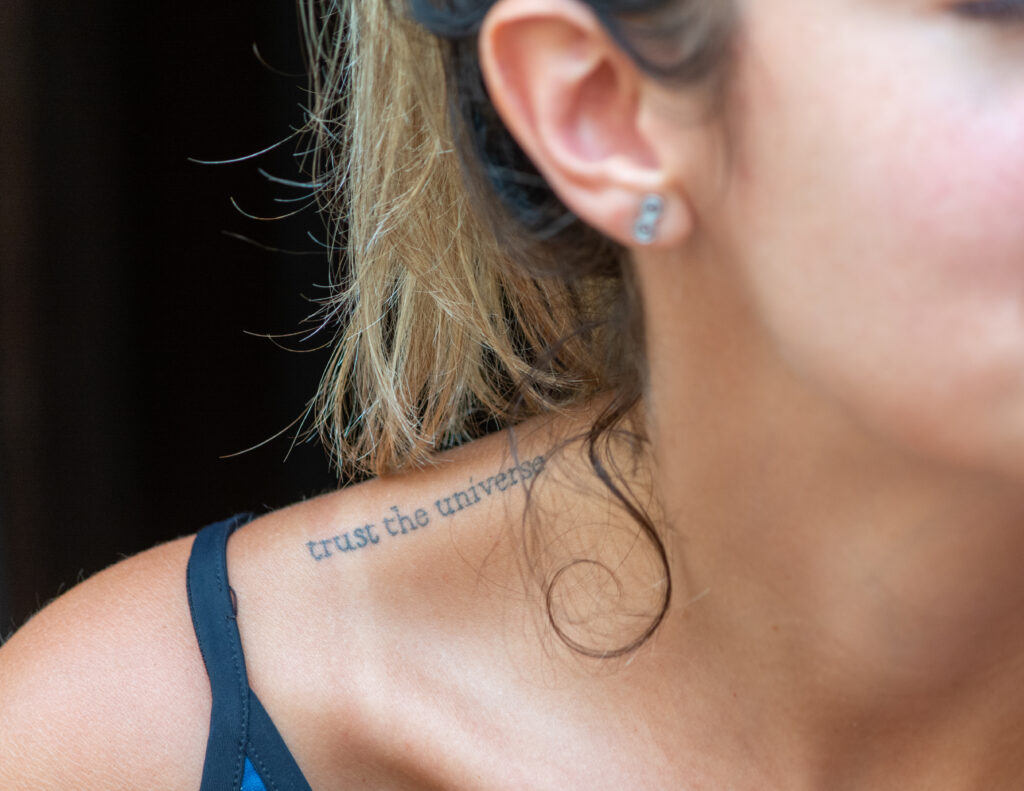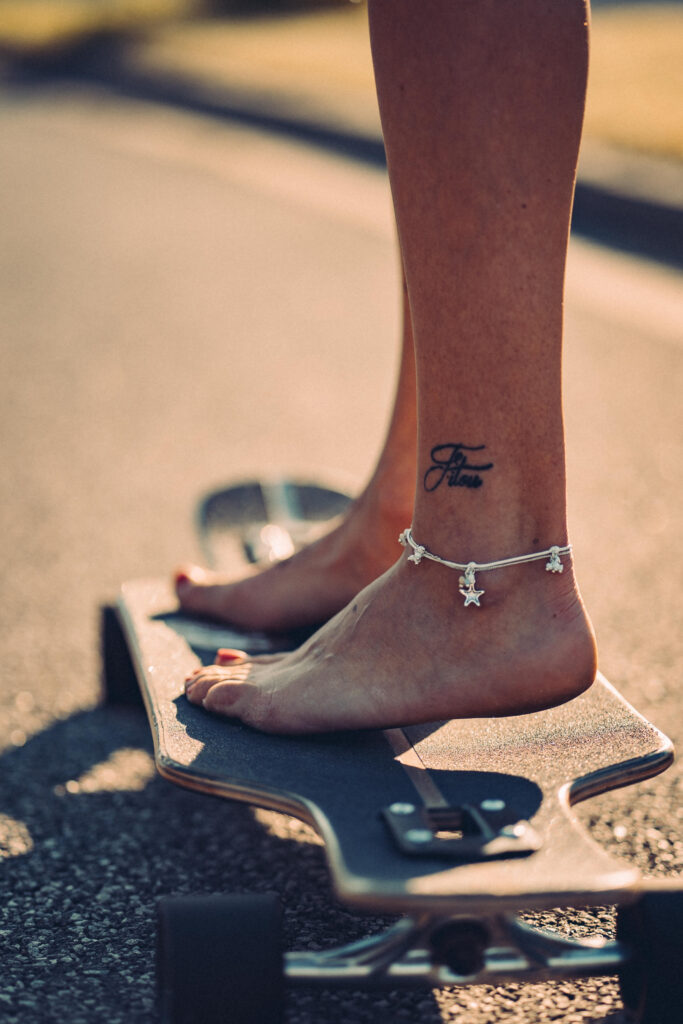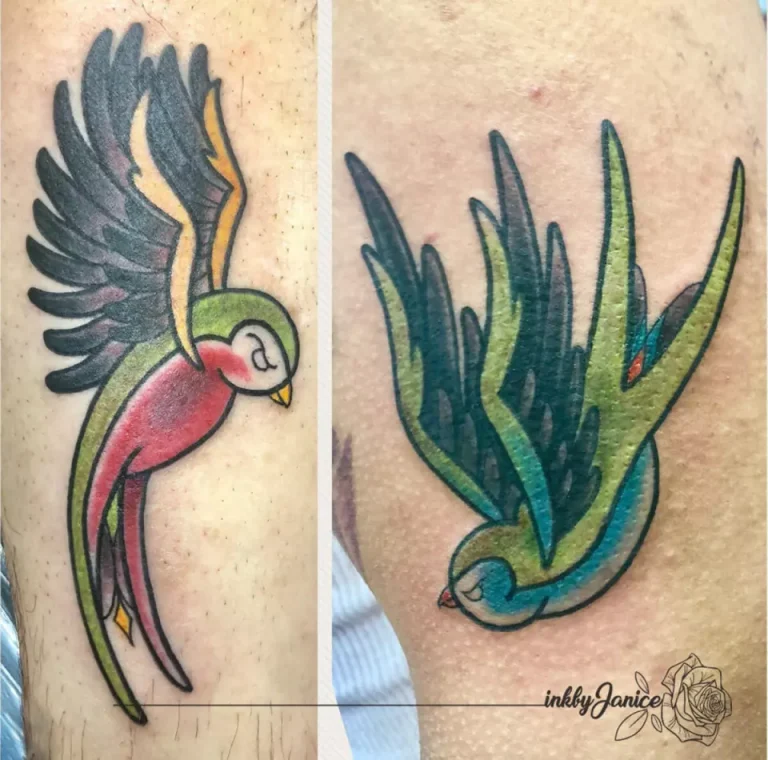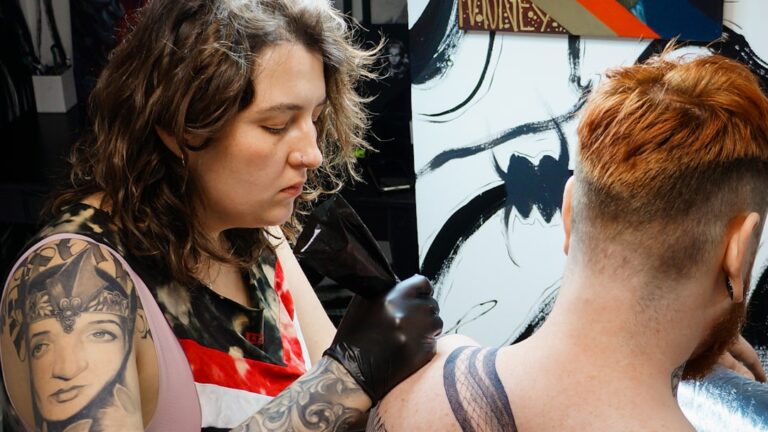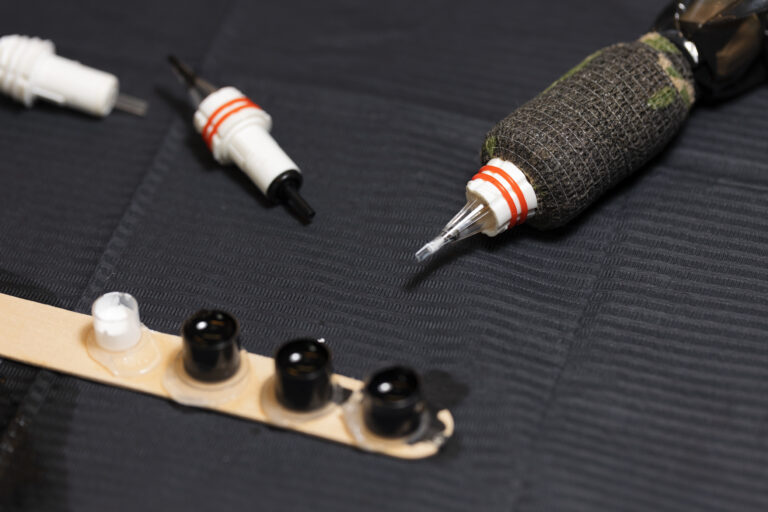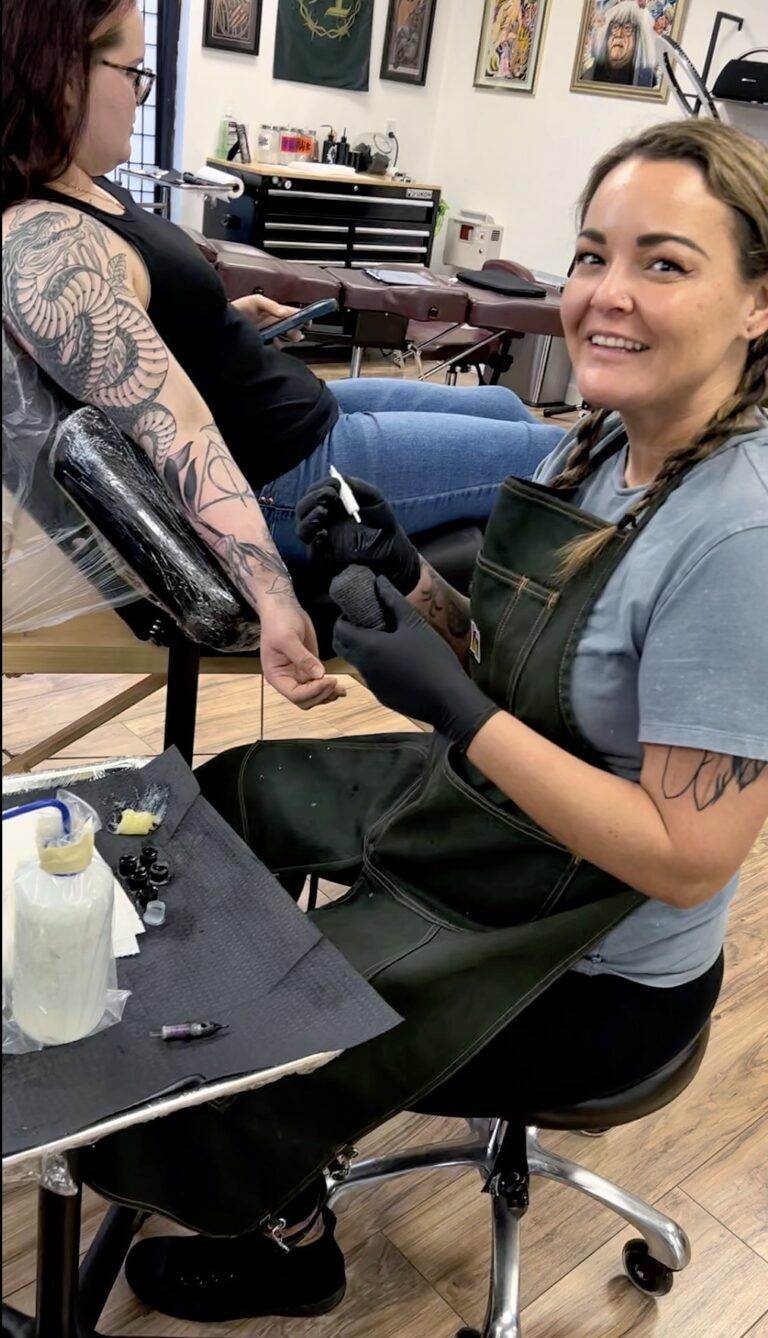Allergies can significantly influence the tattooing experience, affecting both the process and the outcome. Individuals with allergies may have heightened sensitivities to various materials used during tattoo sessions, including inks, needles, and even the cleaning products employed in the studio. For those with skin conditions or sensitivities, the risk of an adverse reaction can be a considerable concern.
Understanding how allergies interact with tattooing is crucial for anyone considering body art, as it can help mitigate potential complications and ensure a smoother experience. Moreover, allergies can manifest in various ways, from mild irritation to severe reactions. For instance, some individuals may experience localized redness or swelling at the tattoo site, while others might face more systemic issues like hives or respiratory distress.
The type of ink used is particularly important; certain pigments are known to cause allergic reactions in susceptible individuals. Therefore, it is essential to be aware of one’s allergy history and to communicate this information effectively to the tattoo artist before proceeding with any design.
Key Takeaways
- Allergies can impact tattoo sessions by causing skin irritation, redness, swelling, and other adverse reactions.
- Communicate openly with your tattoo artist about any allergies or sensitivities to ensure they can use suitable products and techniques.
- Prepare your skin for a tattoo during allergy season by keeping it well-moisturized and avoiding any known allergens.
- Choose tattoo aftercare products specifically designed for allergy-prone skin to minimize the risk of irritation and allergic reactions.
- Manage allergy symptoms during and after the tattoo session by following the aftercare instructions provided by your tattoo artist and seeking medical advice if needed.
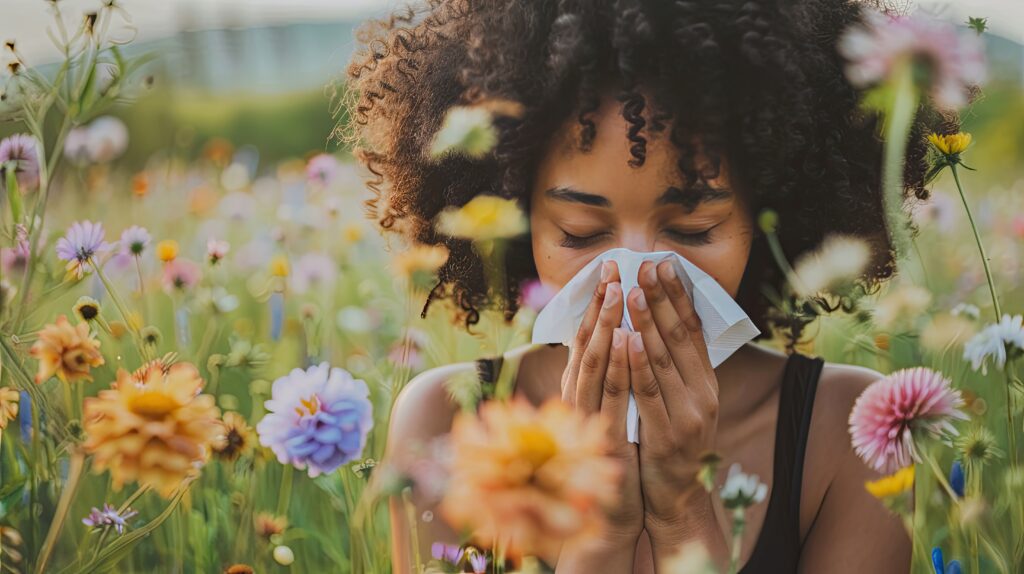
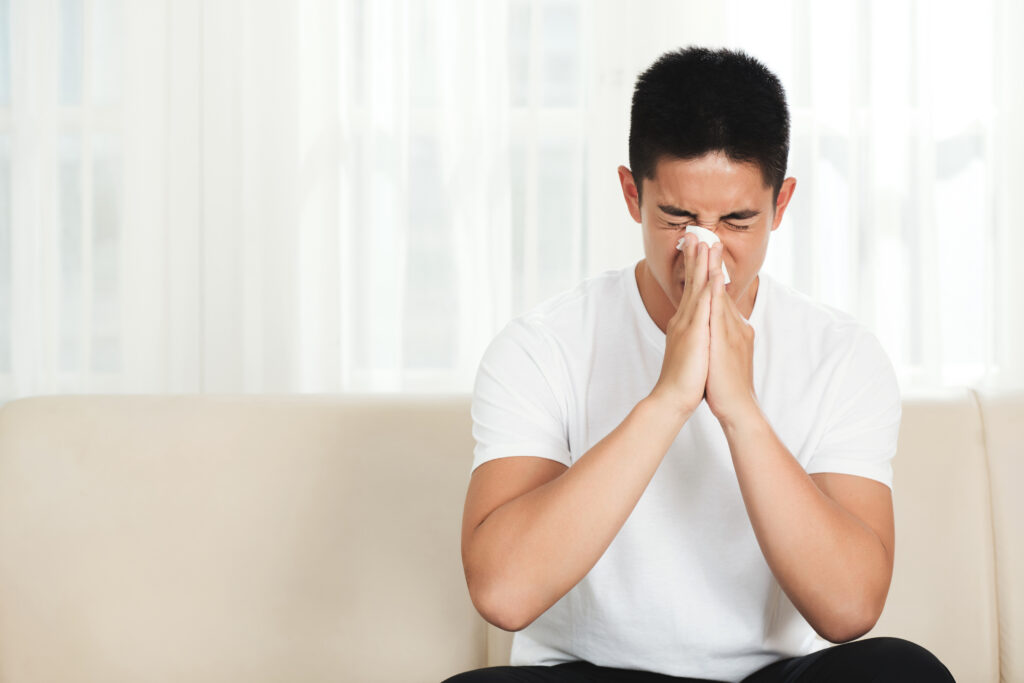
Communicating with Your Tattoo Artist about Allergies
Effective communication with your tattoo artist is paramount when it comes to managing allergies during a tattoo session. Before the appointment, it is advisable to have an open discussion about any known allergies or sensitivities you may have. This includes not only allergies to specific inks but also reactions to latex gloves, antiseptics, or other materials commonly found in tattoo studios.
A professional artist will appreciate your transparency and will likely have protocols in place to accommodate your needs. In addition to discussing known allergies, it is also beneficial to inquire about the products and materials that will be used during your session. Tattoo artists at Opal Lotus in Houston are well-versed in various inks and their compositions, allowing them to recommend alternatives if necessary.
By establishing a clear line of communication, you can work together to create a safe environment that minimizes the risk of allergic reactions while still achieving the desired artistic outcome.
Preparing Your Skin for a Tattoo During Allergy Season
Preparing your skin for a tattoo is especially important during allergy season when environmental allergens can exacerbate sensitivities. To ensure that your skin is in optimal condition for tattooing, consider implementing a skincare routine leading up to your appointment. This may include moisturizing regularly to maintain skin hydration and using gentle cleansers that do not irritate sensitive skin.
Avoiding harsh exfoliants or products containing strong fragrances can also help reduce the risk of irritation. Additionally, it is wise to monitor pollen counts and other allergen levels in your area as your appointment approaches. If you know that you are particularly sensitive to certain allergens, consider scheduling your tattoo session for a time when those levels are lower.
Taking antihistamines prior to your appointment may also help alleviate symptoms, but it is essential to consult with a healthcare professional before doing so. By taking these proactive steps, you can create a more favorable environment for your skin and enhance the overall tattooing experience.
Choosing the Right Tattoo Aftercare Products for Allergy-Prone Skin
Selecting appropriate aftercare products is crucial for individuals with allergy-prone skin, as improper choices can lead to irritation or even infection. After getting a tattoo, the skin undergoes a healing process that requires special attention and care. It is advisable to opt for fragrance-free and hypoallergenic products specifically designed for tattoo aftercare.
These products are formulated to soothe the skin without introducing additional irritants that could trigger an allergic reaction. When choosing aftercare products, look for those containing natural ingredients known for their soothing properties, such as aloe vera or calendula. These ingredients can help calm inflammation and promote healing without causing further irritation.
Additionally, it is essential to avoid products with alcohol or harsh chemicals, as these can dry out the skin and hinder the healing process. By carefully selecting aftercare products that cater to allergy-prone skin, you can support your tattoo’s healing while minimizing the risk of adverse reactions.
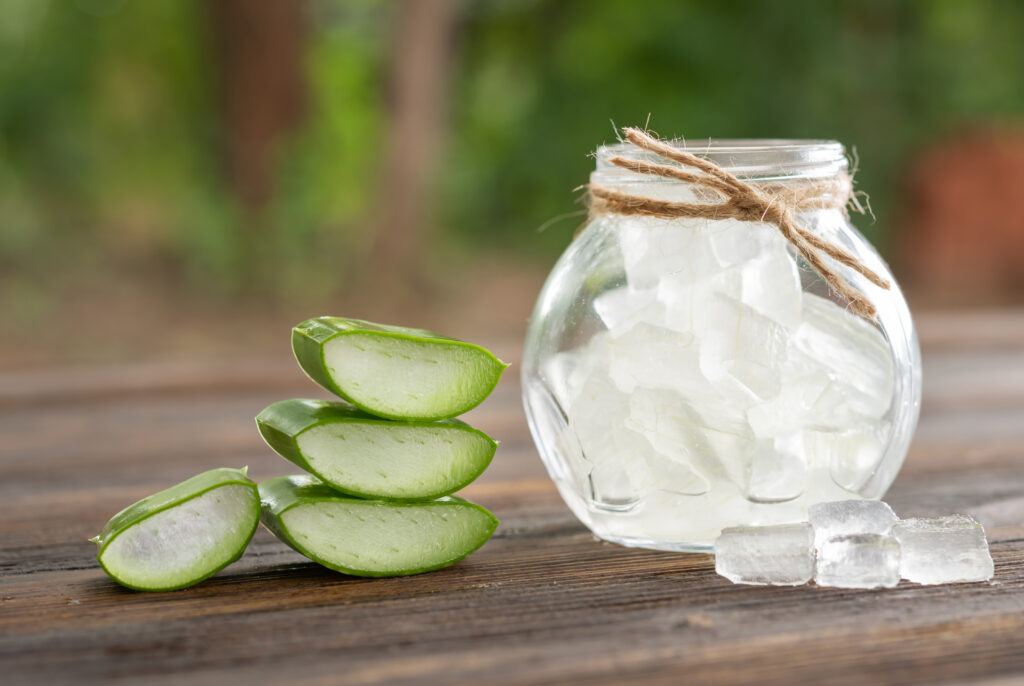
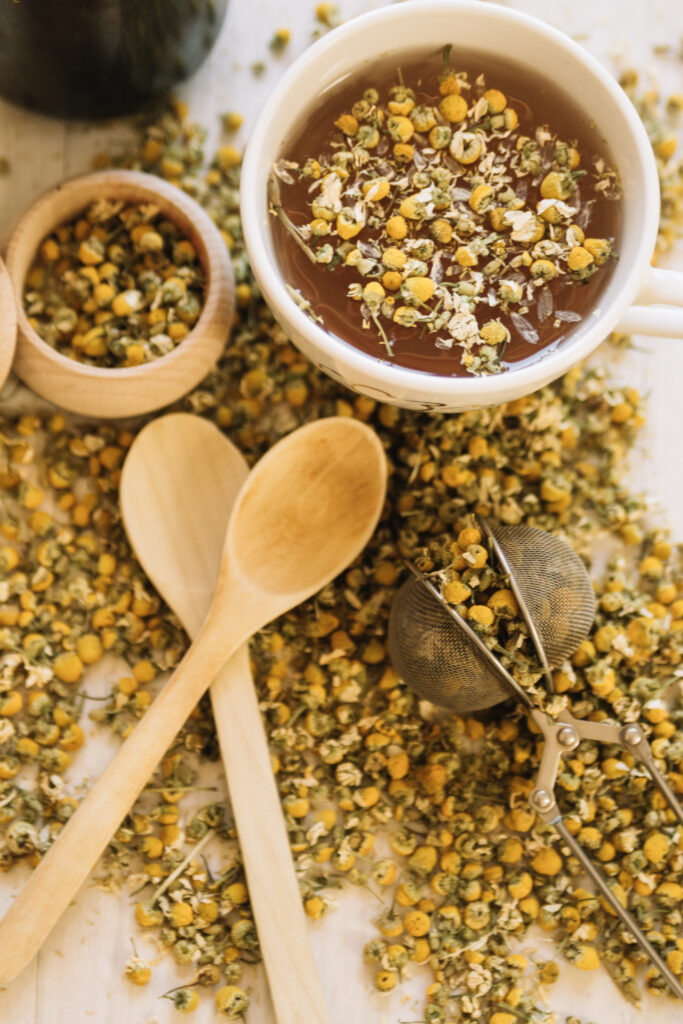
Managing Allergy Symptoms During and After the Tattoo Session
Managing allergy symptoms during and after a tattoo session is vital for ensuring a comfortable experience. If you are prone to seasonal allergies or have specific sensitivities, it is essential to take preventive measures before arriving at the studio. This may include taking antihistamines as recommended by a healthcare professional or using nasal sprays designed to alleviate allergy symptoms.
Arriving at the studio prepared can help you focus on the tattooing process rather than being distracted by discomfort. After the session, continue monitoring your symptoms closely. If you notice any signs of an allergic reaction, such as increased redness or swelling at the tattoo site, it is crucial to address these issues promptly.
Applying cold compresses can help reduce inflammation, while over-the-counter antihistamines may alleviate other symptoms. If symptoms persist or worsen, seeking medical attention is advisable to ensure proper care and treatment.
Tips for Minimizing Allergy Triggers in the Tattoo Studio

Minimizing allergy triggers in the tattoo studio environment is essential for individuals with sensitivities. One effective strategy is to communicate your allergies clearly with your tattoo artist before your appointment begins. This allows them to take necessary precautions, such as using non-latex gloves or selecting hypoallergenic inks that are less likely to cause reactions.
Additionally, consider visiting Opal Lotus during times when the studio is less crowded. A quieter environment can reduce exposure to airborne allergens and minimize stress levels during the session. It may also be helpful to bring your own supplies, such as wipes or barrier creams that you know are safe for your skin type.
By taking these proactive steps, you can create a more comfortable atmosphere that reduces the likelihood of encountering allergy triggers during your tattoo experience.
Planning for Potential Allergy Flare-Ups During the Healing Process
Planning for potential allergy flare-ups during the healing process is crucial for ensuring a successful recovery after getting a tattoo. The initial healing phase typically lasts several weeks, during which time it is essential to monitor your skin closely for any signs of irritation or allergic reactions. Keeping a journal of your symptoms can help identify patterns and triggers that may arise during this period.
In addition to monitoring your skin’s condition, it is wise to have a plan in place for managing flare-ups should they occur. This may include having antihistamines readily available or consulting with a healthcare professional about appropriate treatments for allergic reactions. Being prepared can help alleviate anxiety and ensure that you are equipped to handle any unexpected challenges that may arise during the healing process.
Seeking Medical Advice for Severe Allergic Reactions to Tattoos
In some cases, individuals may experience severe allergic reactions to tattoos that require immediate medical attention. Symptoms such as difficulty breathing, swelling of the face or throat, or widespread hives should not be taken lightly and warrant prompt evaluation by a healthcare professional. If you suspect that you are experiencing a severe reaction, do not hesitate to seek emergency care.
Even if symptoms are milder but persistent, consulting with a medical professional can provide valuable insights into managing allergies related to tattoos. They may recommend specific tests or treatments tailored to your unique situation, helping you navigate future tattoo experiences with greater confidence. Ultimately, prioritizing your health and well-being is paramount when it comes to enjoying body art safely and responsibly.
FAQs
What is Houston allergy season?
Houston allergy season typically occurs in the spring and fall when pollen levels are high. This can cause symptoms such as sneezing, itchy eyes, and congestion for allergy sufferers.
How can allergies affect tattoo sessions?
Allergies can affect tattoo sessions by causing discomfort and irritation to the skin. Allergic reactions can also impact the healing process of a new tattoo.
What precautions should be taken during Houston allergy season when getting a tattoo?
It is important to take antihistamines or other allergy medications as recommended by a healthcare professional to minimize allergy symptoms during a tattoo session. Additionally, it is advisable to keep the tattoo area clean and moisturized to prevent any potential irritation.
Can allergies affect the healing process of a new tattoo?
Yes, allergies can potentially affect the healing process of a new tattoo by causing inflammation, itching, and discomfort. It is important to follow aftercare instructions provided by the tattoo artist to minimize any potential impact of allergies on the healing process.
Should individuals with severe allergies consult a healthcare professional before getting a tattoo during allergy season?
Yes, individuals with severe allergies should consult a healthcare professional before getting a tattoo during allergy season. This is important to ensure that any necessary precautions or medications are taken to minimize the risk of allergic reactions during and after the tattoo session.
